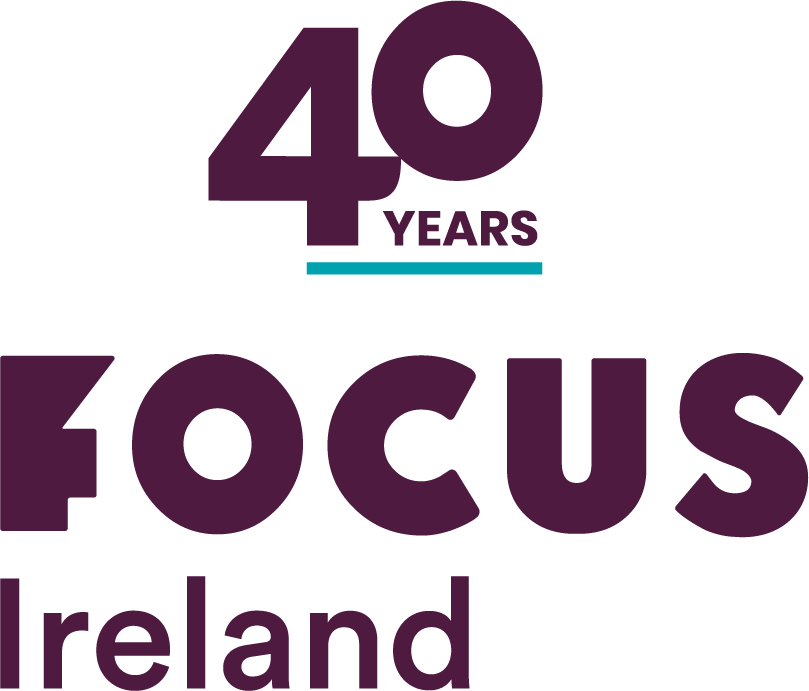Focus Ireland Calls On Minister To Reverse Decision To End Ringfencing Of A % Of Social Housing Allocations To Families Who Are Homeless
Focus Ireland today (14th of September) strongly criticised the quality of the Review which led to Minister Simon Coveney’s controversial decision to discontinue the Ministerial Directive under which a proportion of social housing allocations were ring-fenced to help families move out of homelessness.
Focus Ireland Director of Advocacy, Mike Allen, said: “Former Minister Kelly decision brought in a Directive that saw 50% of social housing units in Dublin allocated to homeless households – or other vulnerable groups. This was the single most successful measure taken by the previous Government to help families and individuals to move out of homelessness.”
Focus Ireland previously criticised Minister Coveney’s decision to discontinue this successful policy when he became Minister saying that it would seriously damage any efforts to tackle the homeless crisis.
Now that the Review on which the Minister based this decision has been published Focus Ireland said it is “staggering” that Minister Coveney made such a crucial decision based on a review that is “self-evidently superficial and evidence-free.”
Mr. Allen said: “There was heavy lobbying against the 50% Directive by the CEOs of the four Dublin local authorities, and the Minister seems to have caved in to this pressure despite the fact that the CEOs did not produce any evidence to support their views.”
The Review prepared by the Housing Agency was completed in April 2016 and was only published today (Sept 14th) when it was discussed by the Oireachtas Committee on Housing and Homelessness.
Focus Ireland said that from its own analysis of the impact of the 50% Directive on homeless families in Dublin showed that a total of 252 families who were eligible for consideration under the Directive, 221 successful left homelessness. Of these 174 (79%) moved into social housing (Local Authority and Approved Housing Body) as a direct result of the Directive.
Furthermore, the DRHE reported to the Oireachtas Housing and Homelessness committee that in 2015 as a result of the protocol more than 1,000 households moved out of homeless services. This was the best ever annual achievement for homeless and housing services. A total of 87% of the total figure or 1,059 were housed in local authorities and approved housing bodies.
Focus Ireland has agian called on Minister to reconsider his decision, this time ensuring he bases any decision on real evidence about the impact of the Directive. Mr. Allen said: “We are confident that if the Minister looked at the real impact of this Directive he would clearly see it must be continued it for the next two years until the promised new social housing comes on stream. When the new social housing is available the Directive can go.”
Focus Ireland maintains here are too many flaws and weaknesses in the Review to detail fully in a press release but the key issues include:
- The Review presents no evidence whatsoever about the impact of the directive on homeless households. It does not say how many homeless households were included in the scope of the Directive (i.e. were already homeless in December 2014). Focus Ireland analysis of the impact on homeless families shows that of the 252 families which were covered by the Directive, 221 had moved out of homelessness. The abolition of the Directive very substantially reduces the chances of the remaining 31 families, who have been homeless now for at least 18 months. The Review gives not consideration to these facts.
- The Review claims that the Directive was not necessary because local authorities were already increasing their allocations to homeless households in 2014, before the directive was introduced. But fails to mention that this occurred in the context of constant calls by Minister Kelly for them to do so, along with threats that if they failed to do so he would introduce a Directive. Minister Coveney’s decision not to renew the Directive clearly signalled an end to that priority.
- The Review fails to distinguish between allocations to families and to single people. Given the massive increase in family homelessness over the last number of year this is a huge gap in the Review. A genuine review would have given consideration to continuing the Directive for some groups but not others.
- The Review repeats the urban myth that the Directive resulted in an increase in the number of households that present as homeless while all the available evidence disproves this prejudice. It claims that there is ‘emerging evidence’ that this is the case but does not present any evidence. The phrase ‘emerging evidence’ appears verbatim in the letter to the Minister from the 4 Dublin Local Authority CEOs and appears to be a euphemism for ‘prejudice based on hearsay.’
Contact: Roughan Mac Namara – 086 85 15 117

